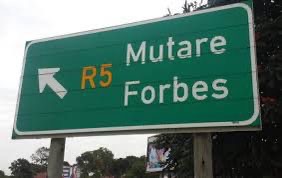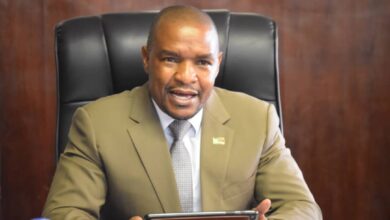Forbes Border Post Exposed for Lithium Smuggling Operations

Forbes Border Post, a key entry point in Zimbabwe, has gained notoriety as a major conduit for the illegal smuggling of lithium out of the country. Startling revelations indicate that four out of seven cases of attempted lithium smuggling in the first quarter of 2024 were intercepted at this border post en-route to the Sea Port of Beira in Mozambique.
The detection of these four trucks transporting lithium by alert security and immigration agents has brought to light the extent of the illicit trade in precious minerals and other contraband through this eastern port of entry.
While the smuggling of minerals, particularly diamonds from Chiadzwa in Marange, has been an ongoing issue at Forbes Border Post, the recent surge in Zimbabwe’s lithium production has made it the latest target for illegal trafficking. Zimbabwe has emerged as a significant global producer of lithium, a sought-after mineral critical for the production of electric vehicle (EV) batteries and essential for the transition to a net-zero global economy.
In an interview during a media engagement workshop, Dr. Nomsa Moyo, acting general manager of the Minerals Marketing Corporation of Zimbabwe (MMCZ), revealed that seven cases of lithium smuggling had been recorded since January 2024, with four of them being intercepted at Forbes Border Post. The smugglers employed counterfeit documents to facilitate their illicit activities, with five cases involving the use of duplicate export papers and two cases attempting to smuggle the mineral without any export papers.
Dr. Moyo further explained that the MMCZ is actively working to combat the illegal smuggling of minerals, including lithium. Stringent security measures are being implemented to reduce corruption at border posts and curtail the smuggling of precious minerals. To this end, the MMCZ is intensifying investigations to apprehend potential smugglers at all ports of entry.
Despite the efforts to combat smuggling, Dr. Moyo acknowledged the existence of collusion between some officials within various government departments and the perpetrators. This collaboration poses a significant challenge to curbing the illegal trafficking of minerals. However, she reaffirmed the commitment of the MMCZ to execute its mandate without fear or favor.
The MMCZ has been striving to be part of the border monitoring security system, but their requests to have officers stationed at border posts have been denied by the Zimbabwe Revenue Authority (ZIMRA). ZIMRA cited the need to maintain an ease-of-doing-business environment, claiming that the presence of additional officers from the MMCZ would be counterproductive. As an alternative, the MMCZ has implemented strategic roadblocks a few kilometers from the border posts to ensure that no trucks can evade scrutiny.
Furthermore, the MMCZ is exploring technological solutions such as an electronic monitoring system and the use of drones to enhance monitoring efforts. The electronic monitoring system will be strategically positioned to allow multiple stakeholders, including ZIMRA and the Zimbabwe Republic Police’s Minerals Flora and Fauna Unit, to monitor and scrutinize cargo-carrying trucks. Drones will also be deployed to observe personnel at border posts and roadblocks, acting as a deterrent against corruption attempts.
The smuggling of fuel commodities has also been uncovered at Forbes Border Post. Notably, former Deputy Minister of Finance and Economic Development, Terrence Mukupe, and three accomplices were recently sentenced to three years each for importing over 138,000 liters of diesel in three tankers without paying duty. The tankers, falsely marked as en-route to the Democratic Republic of Congo, were destined for Harare.
As Zimbabwe continues to solidify its position as a global lithium producer, safeguarding its valuable resources and curbing smuggling operations are imperative for economic growth and environmental sustainability.









